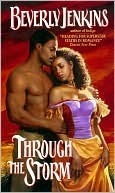More on this book
Community
Kindle Notes & Highlights
The South’s sons and fathers rode off to war in 1861 filled with the pride and arrogance of their class. It was now 1864, and the prideful and the arrogant were deserting in staggering numbers, weary of fighting, starving, and dying.
“Damn that Lincoln! He ought to get on his knees and beg the forgiveness of every White woman in the South for what he’s put us through.
However, never once, in all her twenty-nine years, had he ever treated her or looked upon her as anything other than property; he was the master and Sable his slave.
The sun shines brighter on my day, knowing you are here.”
“Someone said that exact same thing to me a long long time ago. To hear the words again from your lips jarred me a bit.”
“The old ways still walk strongly within me,” she would sometimes say, as if that were explanation enough.
Sable knew she would carry the grief for the rest of her life.
Her last words to me were, “The sun shines brighter on my day, knowing you are here.”
Grief wailed within Sable like a live beast, but because she’d been trained to hide her emotions, it did not show.
she kept pace, intent upon placing as much distance between herself and her past as possible.
Grief accompanied her like a companion, and on long, lonely stretches of the trek she let it have its head. At times she cried so hard, she couldn’t see, and her heart ached as it never had before.
You can’t make a man love you, so—if he could do without me, I could sure do without him. Dropped him out of my heart then and there.”
Sable sensed that the pain of the incident continued to linger in spite of Araminta’s staunch stance.
denuded
Ocmulgee
He had eyes that would make a woman surrender her soul.
pell-mell
Their eyes held for a moment longer, and it seemed as if the world had ceased to turn.
He swore he saw his future in her eyes.
bakehouse.”
we slaves are—or shall I say were—the wheels on the Confederacy’s war train.”
Black people of all shades, ages, and sizes filled Sable’s vision wherever she looked.
lobcourse?”
sutler.”
Sutlers were one-man general stores, appointed by the government and contracted one to a regiment to sell supplies to the troops. Most were greedy bastards who took full advantage of their monopoly by selling necessities at prices far above the standard. Charlie Handler, the sutler there, sold butter for the outrageous price of one dollar a pound, and Mr. Borden’s condensed milk for seventy-five cents a can. Only the six-for-a-quarter molasses cookies, a favorite of the Union troops, were reasonably affordable.
The misconception that her light brown skin and refined speech automatically made her different irritated her. No matter what color or pedigree, a slave was still a slave.
softy
The Firsts had sacrificed much to transform America into the nation it had become; for their labor and blood they were owed something.
“capital” operations, as amputations were called,
Wade-Davis bill
“Can a person be dead inside and remain alive?”
le petit morte.
bijou.
together most of their lives, race would always make them see and interpret certain situations differently.
draught
The next day, February 1, Senator Charles Sumner sponsored a Black Boston lawyer named John Rock for the right to practice law before the Supreme Court. He was the first man of the race to
as if his arms alone would keep her safe.
“She may still mourn his memory, but we who are left behind must go on.”


